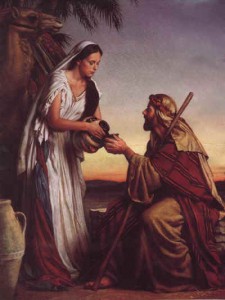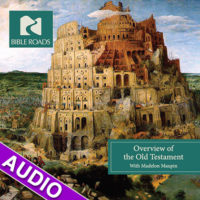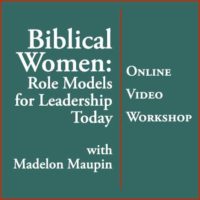Years ago I stayed in a Bed and Breakfast where an intriguing book lay on the bedside table: “Founding Mothers”. When I saw it was by one of my favorite radio commentators, Cokie Roberts of NPR, I plunged in and wasn’t disappointed. What a marvelous concept: telling the too-often forgotten stories of these passionate and patriotic wives of the country’s founding fathers.
There’s a parallel to the wives of Israel’s patriarchs–Abraham, Isaac and Jacob in particular. While the Bible itself is set in a patriarchal culture, and written by men, there is still much we can glean of these remarkable women who helped shape Israel’s history. These ‘founding mothers’ aren’t just wives of their famous husbands, but movers and shakers in their own right. Often they’re portrayed, as is Rebekah, in the role of trickster, outmaneuvering her husband and in effect, outsmarting him.
And although Sarah, Rebekah, Rachel and Leah (both Jacob’s wives) have their unique contributions to make to the Hebrew family story, it is Rebekah who deserves a special calling out. She not only becomes Isaac’s wife and Jacob’s mother, but is the only woman in the Hebrew Bible whose birth is actually recorded (see Gen. 22:23). While she is only mentioned by name, the citing is still unusual, as if the Genesis writer wants us to understand just how important a figure she is.
We meet Rebekah, after her birth is noted, at the well in Haran. Recall this is the place where Abram’s father, Terah, migrated from Ur on his way to Canaan (Gen. 11:31). While Terah died in Haran, Abram obeyed God’s directive at age 75 and moved his family on to Canaan where he was promised ‘a great nation’ will come from his seed (Gen. 12:2).
Now up in years, Abraham wants his son, Isaac, to marry who is mourning the recent death of Sarah, his mother, and Abraham fears he’ll take a Canaanite wife. So it was back to Haran that Abraham sent his servant to find Isaac a suitable partner, laying out two conditions. First, the woman would have to be a relative, ensuring Isaac wouldn’t take a Canaanite wife. Secondly, she would have to be willing to relocate to Canaan and leave her homeland and family.
Genesis 24 tells Rebekah’s story and is the longest chapter in the book of Genesis, appearing as a mini-novel or novella, and revealing her importance to the overall family history. She is introduced in a ‘wooing scene’, a commonly structured story in the Scriptures usually taking place at a well. Not only of Abraham’s tribe, Rebekah is a betulah, Hebrew for a virgin of marriageable age.
Rebekah is Abraham’s grandniece (through Abraham’s brother, Nahor) and shares many of the same courageous characteristics as her great uncle, speaking up to the stranger, initiating kindness by taking extra steps to water his camels and offer a place of rest for the night. These qualities of hospitality and generosity were extremely important in the ancient world and we quickly see the Genesis writer revealing they are at the core of Rebekah’s nature.
Part of the servant’s retelling of meeting Rebekah to her family, as he launches a negotiation to have Rebekah accompany him to Canaan as Isaac’s future bride, is the central role that the Lord plays in the mini drama. This meeting with Rebekah fulfills Abraham’s promise to his servant that indeed an angel would be with him, guiding every step of the way, lifting the meeting beyond chance or coincidence (Gen. 24:40).
We glimpse Rebekah’s independence of thought when her mother and brother initially try to keep her from going, a possible hint that her father was too elderly or infirm to play a role in this major decision. But from Rebekah’s own lips comes the simple but strong declaration: “I will go” (Gen. 24:57). (There is some scholarship suggesting that Haran, homeland of all the ‘founding mothers’ of Genesis, was a matriarchal society where women’s rights were recognized, evidenced by Rebekah’s mother asking her daughter what was her desire and not deciding for her.)
So just as Abraham faced an uncertain future when he left for Canaan, so Rebekah does the same leaving her homeland of Haran. Yet travel she does to marry this unseen second cousin, Isaac. The next blog this month will tell the important part II of Rebekah’s decision in fulfilling God’s promise.
Painting: Rebekah at the Well by Micheal Deas





Very interesting and enlightening comments on a well known Biblical figure. Thank you, Madelon
Thank you Madelon, always enjoy your Bible shares & able to consider & ponder a different view or insight into the treasures and gems found in the Word. Such a blessing and a generous share from Bible Roads.
Well, this made me go read Genesis 24 again with a new perspective! Thanks.
Love these insights into Rebekah’s strong qualities & interesting to note it may have been a matriarchal society! Thanks !
Thank you for this “other side of the story”. How easy it is to read the Bible, glossing over what we have been told, taught, or just accepted to be the truth. What a joy to leave behind those landmarks and see with fresh eyes how these characters embrace and trust where God leads them. Thank you!
Wonderful, Madelon,
I’m First Reader and am going to prepare a Wednesday reading on the topic of Womanhood, using Rebekah and probably others in my selections.
I have always believed that women had a far more significant role in the spiritual journey of Gods message to lift mankind out of the mindless material state he has found himself in. I also believe they were much more lively that the scriptures portray. I think of Naomi & Ruth. What was it that held Ruth’s interest in what Naomi had to say? To me it had to be something spiritually significant, something so vital that Ruth was not prepared to let go & as a consequence did not return to her family. For me the scriptures carry the… Read more »